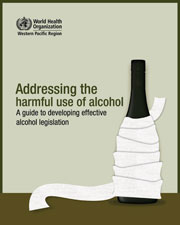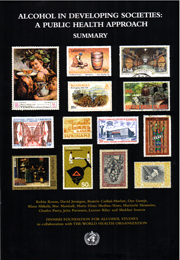
Alcohol and NCDs - need for response to WHO consultation
WHO is currently consulting on a monitoring framework and targets for the prevention and control of NCDs. This follows the UN High-level meeting on NCDs in September, which identified four main common risk factors: tobacco use, harmful use of alcohol, unhealthy diet and lack of physical activity.
Until now, alcohol had maintained its position among the major risk factors for NCDs and the first draft of the WHO monitoring framework and targets including an "exposure target" to achieve a 10% relative reduction in per capita consumption of litres of pure alcohol among persons aged 15+ years. In the latest WHO discussion paper this target has been omitted.
The WHO is inviting relevant NGOs and other agencies to respond to the consultation on the NCD monitoring framework and targets by 19th April 2012. Details can be found on the WHO web page.
Says GAPA secretary, Øystein Bakke: “We urge NGOs and WHO Member States to respond to this consultation calling for the per capita consumption of alcohol target to be reinstated.”
The GAPA position paper can be downloaded here.
The Global Alcohol Policy Alliance states:
- It is imperative that the target to reduce per capita consumption of alcohol is reinstated in the WHO monitoring framework for the prevention and control of NCDs.
- Alcohol is one of the leading risk factors for death and disease globally and there is a strong link between alcohol and NCDs.
- There is strong epidemiological evidence to suggest a reduction in alcohol consumption at a population level will reduce rates of health and social harms caused by alcohol misuse.
- Reasonably good surveillance and monitoring systems are already in place in many parts of the world that may be applied to this target and used for development where data collection is scarce.
- There is an established commitment in the WHO Global Strategy to reduce the harmful use of alcohol. In order to effectively tackle the global burden of NCDs, per capita alcohol consumption must be reinstated among the global priority targets and indicators.
![]()
![]()
Developed with CustomPublish CMS by Nettinfo AS




